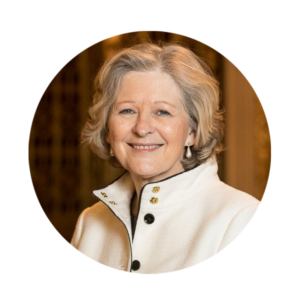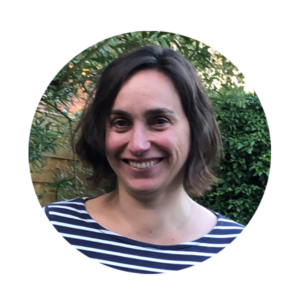BOOKINGS NOW CLOSED
Currently, treatment for Developmental Language Disorders is variable and many common approaches lack a sound evidence base. When it comes to language / communication disorders, many practitioners in CAMHS may feel out of their comfort zone. Fill this gap attending the Judy Dunn Conference to learn all you need to know about the clinical presentation and management of language/ communication disorders. This conference will look at the evidence and examples available to provide effective interventions as developed by some of the leading figures in the field of Speech and Developmental Language Disorder.
Confirmed speakers
Prices and booking
Programme
Who should attend
About the talks
About the speakers
Confirmed speakers
Professor Courtenay Norbury, Professor of Developmental Language & Communication Disorders, UCL – talk title: ‘Prevalence and Persistence of Language Disorders’
Professor Julie Dockrell FRCSLT, FAcSS, Professor of Psychology and Special Needs at Institute of Education, University of London – talk title: ‘Supporting oral language skills in early years: challenges and opportunities’
Professor Charles Hulme, is Professor of Psychology and Education in the Department of Education and William Golding Senior Research Fellow at Brasenose College – talk title: ‘Early language intervention is Effective and Important for Improving Educational Outcomes’
Baroness Sheila Hollins, Crossbench Peer, House of Lords, Emeritus Professor of Psychiatry at St George’s, Founder and Chair of Books Beyond Words – talk title: ‘Improving mental health, emotional literacy and empathy in children using pictures and stories’
Dr. Emma James, Lecturer in Psychology at the University of York – talk title: ‘The reading difficulties of children with (even mild) language impairments’
Dr. Emma Hayiou-Thomas, Senior Lecturer/Associate Professor at University of York – talk title: ‘Sources of developmental language and literacy difficulties: a genetically-informed longitudinal investigation’
Clare Smith, National Institute of Health Research Clinical Academic Doctoral Trainee fellow – talk title: ‘Supporting families to support language development: A case for a ‘community-based’ approach’
Prices and booking
BOOKINGS NOW CLOSED
If you are not an ACAMH Member now is a great time to join and make a saving on future events. Take a look at the different levels of membership on offer.
Programme
Day 1 Wednesday 16 November
13:15 Welcome
13:20 ‘The reading difficulties of children with (even mild) language impairments’ – Dr. Emma James
13:40 Q&A
13:50 ‘Supporting oral language skills in early years: challenges and opportunities’ – Professor Julie Dockrell
14:10 Q&A
14:20 Break
14:30 ‘Prevalence and Persistence of Language Disorders’ – Professor Courtenay Norbury
14:50 Q&A
15:00 ‘Supporting families to support language development: A case for a ‘community-based’ approach’ – Dr. Clare Smith
15:20 Q&A
15:30 Closing Comments
Day 2 Thursday 17 November
13:15 Welcome
13:20 ‘Sources of developmental language and literacy difficulties: a genetically-informed longitudinal investigation’ – Dr. Emma Hayiou-Thomas
13:40 Q&A
13:50 ‘Early language intervention is Effective and Important for Improving Educational Outcomes’ – Professor Charles Hulme
14:10 Q&A
14:20 Break
14:30 ‘Improving mental health, emotional literacy and empathy in children using pictures and stories’ – Baroness Sheila Hollins
14:50 Q&A
15:00 Closing Comments
Who should attend
This day would be particularly beneficial to all those who work with children affected with mental health issues, in particular in the area of speech and language. It will be of particular interest to those conducting research in the field of child and adolescent mental health, Child and Adolescent Psychiatrists and Psychologists, Speciality Doctors, Clinicians, Nurse Practitioners, Investigators, and those with an interest in child and adolescent mental health.
Additionally, it is also relevant to those working in education, such as Educational Psychologists, and those with a pastoral care responsibility, plus those who oversee youth work such as Social Workers.
About the talks
Professor Courtenay Norbury, Professor of Developmental Language & Communication Disorders, UCL
‘Prevalence and Persistence of Language Disorders’ – In this talk I will present data from a 10-year longitudinal study of language development and disorder in over 500 children from school entry through the transition to secondary school. Language abilities from school entry are incredibly stable, meaning that despite progress, gaps between children with language deficits and their peers are maintained throughout primary school and into secondary school. Language disorders affect ~10% of the primary school population, though prevalence is greater in areas of socio-economic deprivation. Our data also show that early language is predictive of later skill in emotion recognition and emotion regulation, representing one potential mechanism through which early language disorders give rise to mental health challenges in adolescence. I will conclude with a brief discussion of what these findings mean for intervention. Not only is there a need for early intervention, but there will also be a need for on-going support to reduce the risk of negative outcomes in mental health. In addition, consideration of how language affects access to mental health interventions is a priority for future research and practice.
Key takeaways
- To understand the nature of Developmental Language Disorder
- To understand the links between language and social/emotional well-being
- To understand the implications of language stability for intervention
Professor Julie Dockrell FRCSLT, FAcSS, Professor of Psychology and Special Needs at Institute of Education, University of London
‘Supporting oral language skills in early years: challenges and opportunities’ – There is substantial evidence indicating that strong oracy skills are the foundation for learning, achieving and social communication at school. Yet many children around the world enter school with poor oral language skills. COVID school closures have further exacerbated the challenges some children have in developing proficient oral language skills.
Addressing and profiling children’s needs in preschool settings becomes an important and achievable goal, but one which raises many challenges for policy and practice. Challenges are evident both in terms of identifying children’s language learning trajectories, understanding the knowledge and expertise of practitioners and the limited resources to evidence informed universal/tier 1 oral language support.
To explore some of these issues I will draw on data from two of our studies. The first explores the key components of oral language on school entry. The second draws on data collected in nursery settings in areas of social disadvantage in England. Without an understanding of oracy skills interventions will not be appropriately targeted and without an understanding of the challenges staff face in implementing strong oral language learning interactions interventions will be ineffective.
It is argued that oral language skills are a complex set of abilities both at the receptive and expressive level. Barriers to talking with children in evidence informed ways are evident at child, practitioner and setting level. These barriers are outlined and ways of supporting effective provision discussed.
Challenges with implementation of interventions and the needs of the children provide a strong basis for informing oracy practice in the early years and guidelines for the development of policies more widely.
Key takeaways
- Understand the key components of oral language in the early years
- Identify ways in which these oral language components can be captured in school settings
- Recognize barriers children may face with oracy skills
- Distinguish ways in which learning environments can support oracy skills
- Consider new ways of underpinning professional development for staff
Professor Charles Hulme, Professor of Psychology and Education in the Department of Education and William Golding Senior Research Fellow at Brasenose College
‘Early language intervention is Effective and Important for Improving Educational Outcomes’ – Language is the medium of instruction and forms a critical foundation for formal education. Many children, especially those from socially disadvantage backgrounds, enter school with poor oral language skills which compromise their ability to benefit from education. Our work, developing and evaluating the Nuffield Early Language Intervention (NELI) programme, shows that an oral language intervention delivered in schools can produce meaningful improvements in children’s oral language skills, as well as resulting in improved reading comprehension and reductions in children’s behaviour problems. The NELI programme is now being delivered in circa 10,000 English primary schools. In addition a recently developed automated language assessment App (LanguageScreen.com) allows schools to identify children with language weaknesses and monitor their progress. I will conclude with a plea for the importance of embedding oral language enrichment work in early educational settings.
Baroness Sheila Hollins, Crossbench Peer, House of Lords, Emeritus Professor of Psychiatry at St George’s, Founder and Chair of Books Beyond Words
‘Improving mental health, emotional literacy and empathy in children using pictures and stories’ – This talk will focus on the experience of running Feeling´s Groups in mainstream and SEND primary schools and using Beyond Words pictures and stories to enable children to talk about their feelings. The use of visual literature with primary age children who are experiencing mental ill health and/or emotional distress has enabled children to understand the feelings they are experiencing, increase their emotional vocabulary and build empathy for other children. This talk will demonstrate the importance of using visual literature in the classroom and in small group and 1:1 sessions to improve children´s mental health. Dealing with topics such as bereavement, abuse and bullying can be challenging for teachers and this talk shows how training, mentoring and a whole school approach to dealing with mental health has enabled teachers to approach ´taboo´ topics sensitively and to positive effect through Beyond Words Open Book Project. This talk will include perspectives from Professor Barry Carpenter, Headteacher Georgina Fletcher, SEND teacher Leigh Blakeman and Open Book trainer and teacher, Marie Grant.
Key takeaways
- Understanding the role of pictures and stories in building mental health, emotional literacy and empathy.
- Understand how Beyond Words stories can be used as a tool in primary school, SEND schools and in mental health settings.
- Understand the need for teachers to develop confidence and skills in talking about ´taboo´ topics.
Dr. Emma James, Postdocotral research associate, Stipendiary Lecturer, St Catherine’s College, University Oxford
‘The reading difficulties of children with (even mild) language impairments’ – We most commonly think of reading disorders as difficulties with decoding written letters into words, as in dyslexia. Yet the ultimate goal of reading is to comprehend, and difficulties with text understanding often go unnoticed. In this talk, I will present our recent project that investigated why some children find reading comprehension difficult. We found that—beyond problems with decoding—reading comprehension weaknesses were related to poor language and nonverbal IQ. These findings emphasise the importance of language for reading outcomes, and we will discuss similarities to the literacy profiles of children with developmental language disorder. We also found that children with more severe reading difficulties had co-occurring weaknesses spanning memory and attention. Together, these results suggest we should consider broad range of strengths and weaknesses when supporting children with reading and language difficulties. I will end with an overview of some of the open questions and ongoing research in this area.
Key takeaways
- To understand different aspects of reading difficulty
- To recognise the implications of language problems for comprehension success
- To consider the complexities of comprehending written language
Dr. Emma Hayiou-Thomas, Senior Lecturer/Associate Professor at University of York
‘Sources of developmental language and literacy difficulties: a genetically-informed longitudinal investigation’ – Deficits in different aspects of early language impact on reading in different ways: while phonological deficits are a powerful predictor of later decoding and word-level reading skills, broader oral language skills form the substrate for reading comprehension. This two-dimensional model provides a useful framework for relating spoken and written language difficulties, but raises some interesting questions which I will explore in this talk: what are the sources – in terms of the genetic and environmental etiology – of individual differences in phonological vs broader oral language skills? How does the etiology of these dimensions, and the relationship between them, change over time? Finally, are there other risk and protective factors beyond the language domain, that contribute to children’s reading outcomes?
Key takeaways
- To understand that deficits in different aspects of early language – phonology vs broader oral language skills – have different genetic and environmental sources.
- To recognise that difficulties in these aspects of early language go on to impact literacy in different ways.
- To consider strengths and difficulties beyond the language domain that may also contribute to children’s language and reading outcomes.
- To reflect on how taking account of children’s particular profiles of strengths and difficulties – for example, in phonology, broader language, and executive function – may help to optimise the support we can offer
Dr. Clare Smith
‘Supporting families to support language development: A case for a ‘community-based’ approach’ – Parents and carers of children are often referred to as the ‘first teachers’. Public health programmes recognise this and include advice to families on how to support language development in the first years of life. But what advice works and for whom? We know, for example, that the differences in language capability start very early in life and are correlated with socioeconomic status. Children from disadvantaged families are more likely to have poorer language outcomes. We also know that these same families have fewer resources to draw on to be able to engage with standard health interventions which rely on them being the ‘first teachers’ of their child.
Using findings from our research into parental-based approaches for language development, I hope to make a case for a community-informed focus, to support families in this endeavour. I will encourage us to consider the concept of ‘parental activation’ for supporting language and how this might be facilitated. I will draw on two of our recent studies, first, a trial into a parental-based public health initiative, the Baby-talk service, and second, a trial of an enhanced speech and language therapy programme for late talkers in areas of social disadvantage.
I hope that this talk will illustrate the relationship between social disadvantage, the home environment, and child language outcomes. I also hope to make case that a community focused approach to speech and language therapy can help provide the support that families need in their role of supporting child language development.
Key takeaways
- To understand the relationship between social disadvantage and child language outcomes.
- To understand parent activation in supporting engagement with child development and health interventions, and to explore what are barriers to and facilitators of parent activation.
- To consider the wider application of a ‘community-based’ approach to supporting language and communication across the age span of childhood and adolescence.
About the speakers

Courtenay Norbury is Professor of Developmental Disorders of Language and Communication at Psychology and Language Sciences, University College London. She is the Director of the Literacy, Language and Communication (LiLaC) Lab and a Fellow of the Royal College of Speech and Language Therapists.
She obtained her PhD in Experimental Psychology at the University of Oxford, working with Professor Dorothy Bishop on the overlapping language profiles that characterise autism spectrum disorder and ‘specific’ language impairment. Professor Norbury’s current research focuses on language disorders and how language interacts with other aspects of development. She is leading SCALES, a population study of language development and disorder from school entry. She is also a founding member of the RADLD campaign.

Julie Dockrell (FRCSLT, FAcSS) is Professor of Psychology and Special Needs at the UCL, Institute of Education and qualified as both a clinical and educational psychologist. She graduated with First Class Honours degree in, Psychology. Subsidiaries: Education, Biology, Philosophy at the University of Stirling where she went on to complete her PhD.
Her research interests are in patterns of language development and the ways in which oral language skills impact on children’s learning, interaction, and attainments. A central theme in this research has been the application of evidence-based research to support children’s learning. She has led projects on language development funded by the Department for Education, ESRC, EPSRC, Nuffield Foundation and Leverhulme trust. She has published in a wide range of journals with over 150 peer reviewed journal papers, written books and book chapters on language development and learning difficulties. Her work is underpinned by collaborative engagement and exploring development across different settings and countries.
She was a previous editor of the British Journal of Educational Psychology, associate editor for Journal of Speech Language and Hearing Research, Learning and Instruction, International Journal of Language and Communication Difficulties, First language and Child Language Teaching and Therapy. She was a co-director of the Better Communication Research Programme, UK. She is currently PI on a research programme examining universal language support for nursery aged children in areas of social disadvantage and the Key to oral language. She is Co-I on the GCRF Action against stunting hub and the Nuffield funded teaching grammar for writing programme.

Baroness Hollins is a professor of psychiatry and founded the visual literacy charity, Beyond Words more than 30 years ago. She is a Crossbench Peer in the House of Lords, was President of the Royal College of Psychiatrists, the British Medical Association and chair of the BMA Board of Science. Baroness Hollins was appointed in 2019 by the Secretary of State for Health and Social Care to Chair the Oversight Panel to oversee Independent Care, Education and Treatment Reviews of people placed in Long Term Segregation.
Baroness Hollins developed a method of enabling people with learning disabilities to talk about their feelings and understand the world around them using pictures and stories. Through her charitable work, this method is now being used widely by mental health professionals, in primary care, through community book clubs, refugee groups and with children in mainstream and SEND schools.

Charles Hulme is Emeritus Professor of Psychology and Education at the University of Oxford and Professor of Psychology at Oxford Brookes University. Charles has broad research interests in reading, language and memory processes and their development and is an expert on randomized controlled trials in Education. He has published widely and is in the top 2% for citations of all researchers in the field of Education. He holds an honorary doctorate from the University of Oslo (2014) and is a member of Academia Europea and a Fellow of the Academy of Social Sciences. He was elected a Fellow of the British Academy in 2017.

Dr. Emma James is a Lecturer in Psychology at the University of York, specialising in language learning and literacy development. She obtained an undergraduate degree in Experimental Psychology at the University of Oxford, followed by a Masters in Developmental Cognitive Neuroscience and PhD in Psychology at the University of York. Funded by the Economic and Social Research Council, her recent research within the ReadOxford group examines the predictors and consequences of children’s reading comprehension difficulties, using data from a large-scale birth cohort study.

Emma’s research focuses on the sources of developmental difficulties in language and literacy. She completed her undergraduate degree in Psychology and Physiology, and her D.Phil. in Experimental Psychology at the University of Oxford. Following a post-doctoral position at the Social, Genetic & Developmental Psychiatry Centre at King’s College London, working with the Twins Early Development Study, she joined the Psychology department at York in 2005. Her work combines experimental methodology with behavioural genetic and family-risk designs in order to examine genetic and cognitive contributions to children’s language and literacy disorders.

National Institute of Health Research Clinical Academic Doctoral Trainee fellow, Clare gained her PhD in Developmental Psychology at the University of Surrey. Her thesis examined the effectiveness of a primary prevention initiative for language development on parent-child interactions and child language outcomes in areas of social disadvantage. Clare’s research interests are concerned with environmental factors on early language development, particularly the impact of disadvantage on families opportunities and capabilities to support language development at home.
To book
BOOKINGS NOW CLOSED
If you are not an ACAMH Member now is a great time to join and make a saving on future events. Take a look at the different levels of membership on offer.


